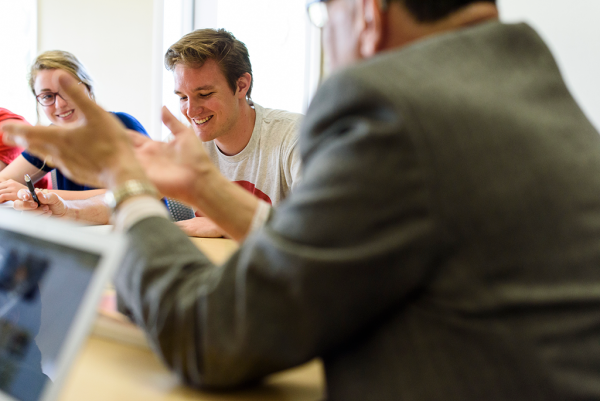Confessions of a Seminarholic

Three months into each semester, as we approach course registration, I tell myself, “don’t do it this time. Don’t over-enroll again.” I call my dad, solicit an intervention from my friends — “do not let me sign up for 2.75 units.” But what do I do? I take that fifth class, that extra seminar. My father laughs, my housemates scoff and I blush with shame — yet I just can’t help but want more. I came to Kenyon for the seminar; and heck, I’m going to take as many as physically possible.
If you’re reading this, Office of the Registrar, I’m sorry. Yes, I am nearly behind on the distribution requirements necessary to graduate; yes, I did just sign up for three classes in my major for the third time; and yes, I am aware that I’ll have to take calculus at the crack of dawn this spring in order to make this all work. (That should especially scare them, since I nearly failed pre-calculus in high school. I didn’t come to Kenyon for math, folks.) But the seminar is up there with what I love most about Kenyon.
I’ve had them with as few as six or as many as 12 students. I’ve had them on Wednesday nights and Friday afternoons. I’ve had them in the departments of political science and of English. Seminars meet once a week for three hours, and consist primarily of discussion between students and the professor, in the context of the week’s readings and theme.
I especially can’t resist a political science seminar; they’ve continually been my most meaningful academic experiences. Last fall, I added a special topic seminar wherein we talked through problems in international political economy; it completely changed how I saw the world. Last spring, I read Plato’s “Gorgias”; the discussion fundamentally transformed how I live my own life. It’s safe to expect the same from next semester: on Wednesday nights I’ll read Plato’s “Symposium,” the dialogue on love, and on Thursday evenings we’ll dive deep into individualist and communitarian theory, a tension that defines modern life. What’s at stake isn’t rote information, but knowledge of what constitutes an examined, meaningful, happy life.
Seminars changed the way I think, the way I argue and the way I listen. Seminars strengthen my respect for my peers, build relationships with my favorite professors, stoke my ambition to teach. Seminars bring the best out of everyone involved — students, professors, even the authors of the texts we’re discussing.
Sitting around a table, facing each other in our small group, we can’t help but develop a collegial way with each other; after a few weeks, we’ve become a unit, a group with inside jokes and special understanding of each other and the issues at stake. I’ve heard tell of professors holding class over coffee at Wiggin Street, inviting their students for drinks at the Village Inn or brunch at their home.
And of course, the seminar paper is its own beast, a 15+ page Bucephalus we each must tame. I’ve written several: on the integration problems of the World Trade Organization, the problem of death and happiness, the Austro-Prussian War of 1866. Each has been a growth experience: my first taught me how to write concisely at length, the second demonstrated to me that we need courage to discover truth, and from the third I learned the thrill of topical expertise derived from extensive research.
The seminar is the hallmark of the small liberal arts college, the pinnacle of a Kenyon education. Talking to alumni who’ve taken the same course, who read the same works and encountered the same ideas, we share an academic experience and a personal journey that transcends all else. Seminars only meet for 13 weeks, but they will stick with you for life.
